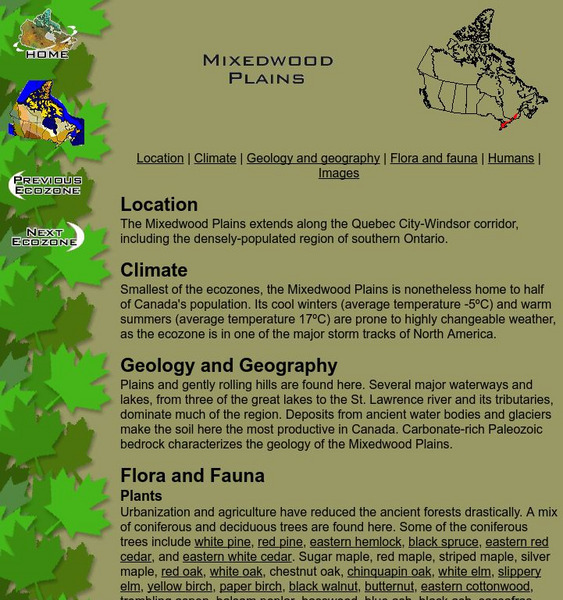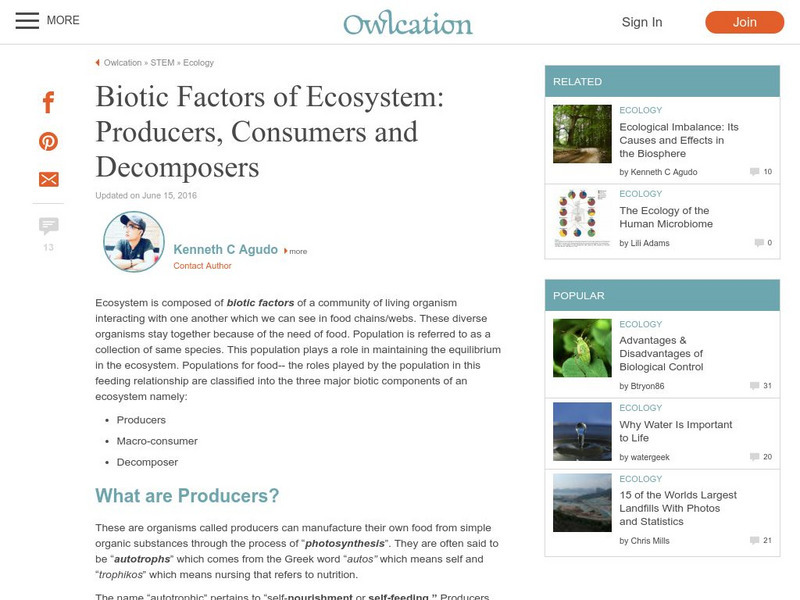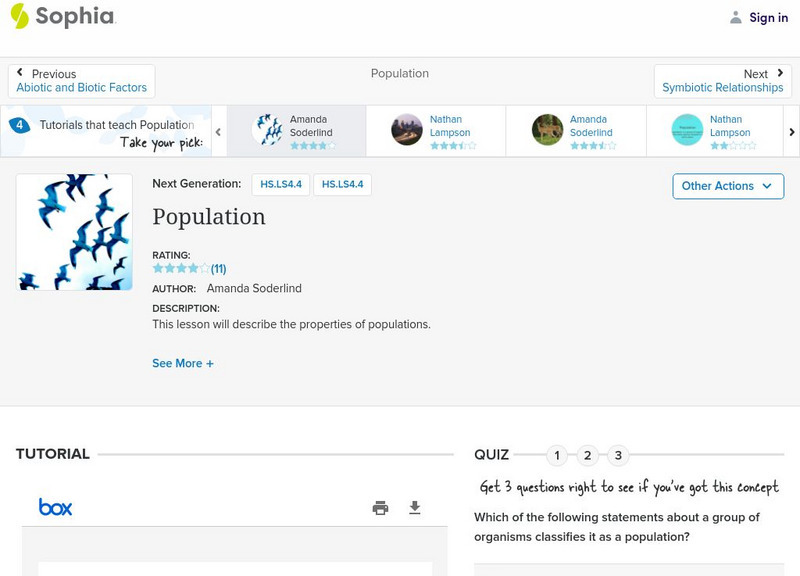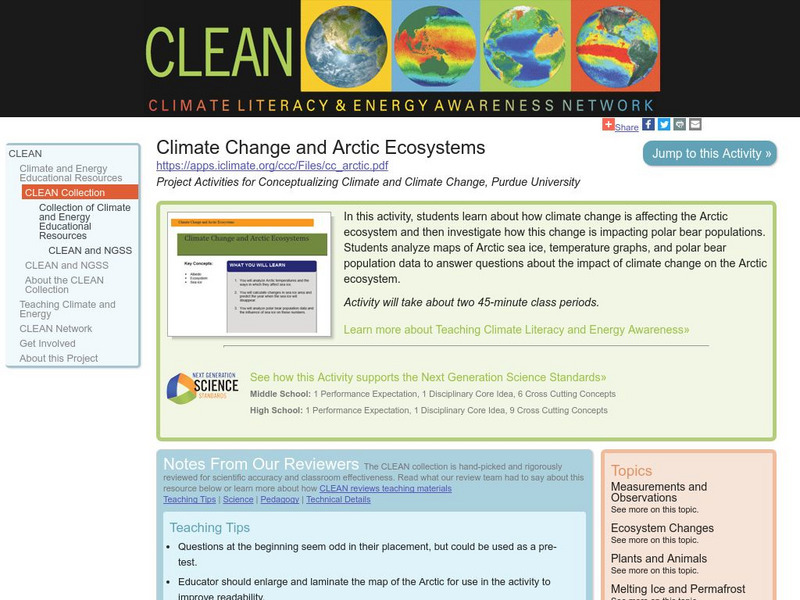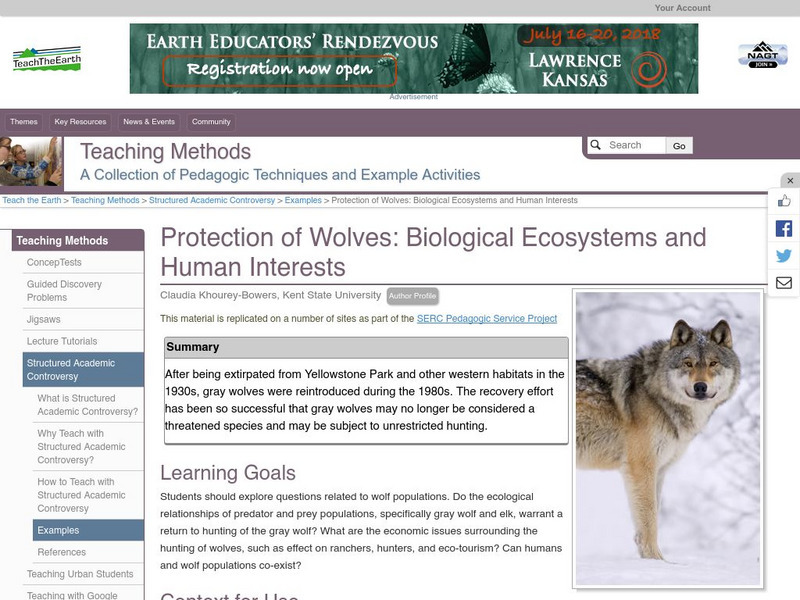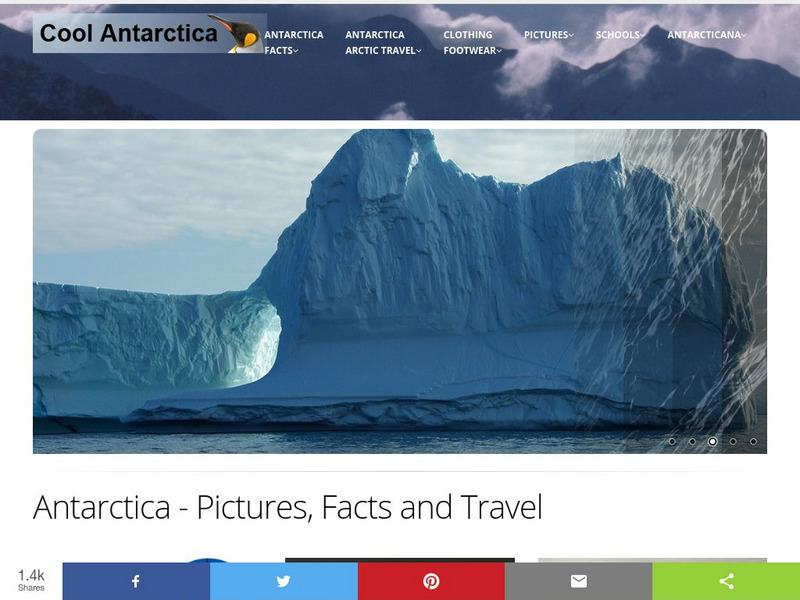Hi, what do you want to do?
PBS
Pbs Learning Media: Dustin Madden: Science Teacher
In this video profile produced for Teachers' Domain, meet teacher Dustin Madden, an Inupiaq who hopes to inspire students to take an active role in protecting the natural environment by giving them a foundation in math and science.
Concord Consortium
Concord Consortium: Stem Resources: Variations and Adaptations
Experiment with variations in grass to see which size grows best with different amounts of water. Understand that grass that can live in different levels and change to its environment has a better chance of surviving. Also, experiment...
McGill University
Mc Gill University: Canadian Biodiversity: Ecozones: Mixedwood Plains
This Mixedwood Plains ecozone extends along the Quebec City- Windsor corridor and the densely-populated region of Southern Ontario. This brief, concise description includes a collection of images of the animals and birds native to the...
Other
Hub Pages: Biotic Factors of Ecosystem: Producers, Consumers and Decomposers
An ecosystem is composed of biotic factors of a community of living organisms interacting with one another which we can see in food chains/webs. These diverse organisms stay together because of the need of food. Population is referred to...
Sophia Learning
Sophia: Population: Lesson 2
This lesson will describe the properties of populations. It is 2 of 8 in the series titled "Population."
Sophia Learning
Sophia: Population: Lesson 3
This lesson will describe the properties of populations. It is 3 of 8 in the series titled "Population."
Sophia Learning
Sophia: Population: Lesson 4
This lesson will describe the properties of populations. It is 4 of 8 in the series titled "Population."
Polk Brothers Foundation Center for Urban Education at DePaul University
De Paul University: Center for Urban Education: Changing the Ecosystem: Q & a [Pdf]
"Changing the Ecosystem: Q & A" is a one page, nonfiction, reading passage about how the loss of the prairie to farming and population growth impacts the ecosystem. It is followed by questions which require students to provide...
Climate Literacy
Clean: Climate Change and Arctic Ecosystems
Learners learn about how climate change is affecting the Arctic ecosystem, and then investigate how this change is impacting polar bear populations. Students analyze maps of Arctic sea ice, temperature graphs, and polar bear population...
Texas Instruments
Texas Instruments: Jason: Island Fox: A Population in Trouble
Examine the relationship between the island fox and golden eagle populations on Santa Cruz Island over a twelve-year period using the TI-73 Explorer to graph and analyze the values.
Oswego City School District
Regents Prep: Ecosystems/communities
Abiotic factors vary in the environment and determining the types and numbers of organisms that exist in that environment. Factors which determine the types and numbers of organisms of a species in an ecosystem are called limiting...
Science Education Resource Center at Carleton College
Serc: Protection of Wolves: Biological Ecosystems and Human Interests
Students will exam the different perspectives on why the gray wolf was reintroduced into many western states during the 1980s, the success of the reintroduction, and the benefits and problems from the recovery of the gray wolf...
Science Education Resource Center at Carleton College
Serc: Eagles in the Ecosystem Classroom Jigsaw Activity
In this in-depth jigsaw activity, students investigate the role bald eagles play in the ecosystem, why they were listed as endangered, the effects of DDT on eagles, and the effects of lead on eagles. Furthermore, students will then graph...
BBC
Bbc: Gcse Bitesize: Adaptations, Interdependence and Competition Aqa
The abundance and distribution of organisms in an ecosystem is determined by biotic and abiotic factors. Animals and plants have adaptations to allow them to compete for resources.
Scholastic
Scholastic: Endangered Ecosystems: Costa Rican Caterpillars
Go on a mission to Costa Rica and Mexico, and explore the state of tropical rain forest ecosystems by examining Costa Rican caterpillars. Learn what the change in this animal's population means for the rest of the ecosystem.
Georgia Department of Education
Ga Virtual Learning: Ap Biology: Ecology
Students review the study of living things and make connections back to Earth's systems. This unit focuses on how various species, grouped in populations and communities, work with the nonliving things around them to ensure survival.
ClassFlow
Class Flow: Understanding Ecosystems: Part 1 of 4
[Free Registration/Login Required] Students will get an introduction to ecosystems. They will be able to distinguish nonliving and living thins in a habitat.
TeachEngineering
Teach Engineering: Computer Simulation of the Sonoran Desert Community
The computer program's simulation of a Sonoran desert community should ultimately strengthen the student's comprehension of what is required for a natural ecosystem to sustain itself (remain in balance). This computer simulation program...
TED Talks
Ted: Ted Ed: Making Sense of How Life Fits Together
Bobbi Seleski catalogs biology from our body and beyond, tracking how unicellular organisms, tissues, organs, organ systems, organisms, populations, communities, ecosystems, and our biosphere build off of each other and work together....
Science Struck
Science Struck: The 6 Chief Levels of Organization in Ecology
Describes six levels of organization in the biological world - individual species, population, community, ecosystem, biome, and biosphere.
Cosmo Learning
Cosmo Learning: Principles of Evolution, Ecology and Behavior
A collection of video lectures introducing beginning biology students to the principles of evolution, ecology, and behavior. The course was taught three times a week for a semester at Yale University. The course discusses concepts of...
PBS
Pbs Learning Media: La'ona De Wilde: Environmental Biologist
In this video profile produced for Teachers' Domain, meet La'ona DeWilde, an environmental biologist who integrates her Athabascan heritage and her Western scientific training to help remote Alaskan villages address environmental issues.
Other
Cool Antarctica: Pictures, Information, and Travel Guide
A complete look at the continent of Antarctica. You can view pictures, utilize a fact file index, and get a historical timeline.
Concord Consortium
Concord Consortium: Evolution: Natural Selection
The concept of interdependence in an ecosystem and its effect on the evolution of populations is further explored through a model of a dam. Students build a dam in the middle of the field, dividing the ecosystem in half to illustrate the...






